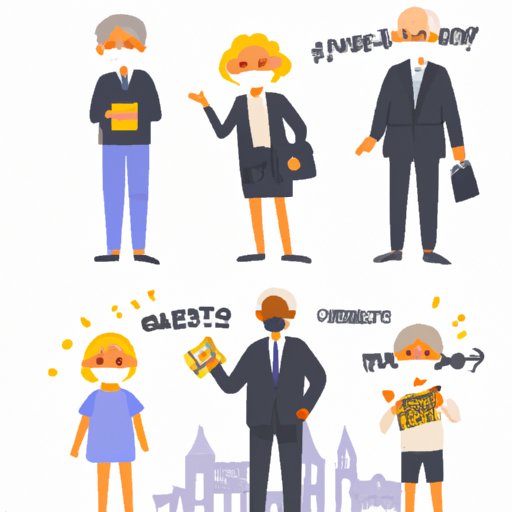Introduction
2022 has seen a curious trend in the labor market: many people do not want to work. Despite record numbers of job openings, employers are unable to fill positions, leaving many industries struggling. This article explores the myriad reasons why this is happening, from the lingering effects of the COVID-19 pandemic to the rise of remote work, economic factors, challenges in the hiring process, mental health, and the impact of Universal Basic Income.
The Impact of the COVID-19 Pandemic on the Labor Market
The COVID-19 pandemic has had a profound impact on the labor market, leaving many people jobless and businesses struggling to retain employees. The pandemic has also brought to light deep-seated inequalities in the labor market. While many high-paid professionals have been able to work from home, front-line workers have continued to put themselves at risk. As a result, some may be hesitant to return to traditional employment.
Furthermore, the pandemic has affected job opportunities in certain industries. For example, the tourism industry has taken a hit, with fewer people traveling and therefore fewer job openings in that sector. Hospitality and retail have also been impacted as customers continue to be hesitant to return to crowded spaces.
The Rise of Remote Work
The pandemic has shifted attitudes towards remote work. Many professionals have now experienced the benefits of flexibility and are hesitant to return to traditional office environments. The ability to work from home can offer a better work-life balance and reduce commuting time and expenses. It also allows workers with disabilities or caregiving responsibilities to participate in the workforce more easily.
However, not all jobs are suitable for remote work, and some workers may miss the social interaction and structure of in-person work environments.
Economic Factors
Another factor impacting workers’ motivation to seek employment is inflation, rising costs of living, and stagnant wages. The cost of living has increased in many areas while wages have largely remained the same. This has resulted in many workers struggling to make ends meet, even when employed. In addition, the COVID-19 pandemic has brought about changes in the economy that have upended traditional employment opportunities, leading to workers’ uncertainty about their job prospects.
Examples of how workers are impacted by these factors can be seen in the high levels of household debt and the increased demand for government assistance programs, such as unemployment benefits and Universal Basic Income.
Challenges in the Hiring Process
The current job market has impacted the hiring process in a myriad of ways, making it more challenging for employers to fill positions. There is a labor shortage in many industries, resulting in fewer candidates for open positions. Employers are struggling to compete with other companies to attract top talent, leading to disappearing bonuses or incentives. Recruitment activities are also hampered by a lack of networking opportunities, and traditional channels, such as job fairs and career fairs, are still uncommon due to COVID-19 restrictions.
Mental Health and Burnout
The pandemic has also had significant consequences for workers’ mental health and well-being, with many experiencing burnout and a lack of motivation to work. Remote work can contribute to feelings of isolation and detachment, while front-line workers face health risks and trauma on a daily basis. Some people may be leaving the workforce to focus on their mental health, intending to take time off or seek new opportunities after a period of rest.
There is a clear correlation between mental health and burnout when it comes to leaving the workforce. Many people unable to find a work-life balance, and/or overburdened by stress, may be opting to search for opportunities that offer better work-life balance, such as starting their own small businesses.
The Impact of Universal Basic Income
Finally, the concept of Universal Basic Income (UBI) is changing the way people think about work. UBI is a government-provided income distributed to every individual regardless of their employment status or wealth, with the intention of providing financial security and assisting in poverty reduction. In addition, it may provide a safety net for those struggling to make ends meet. However, a potential drawback of UBI is that it may discourage people from seeking employment, or even incentivize them to quit their jobs. This could impact the labor market in unpredictable ways.
Conclusion
The reasons why nobody wants to work anymore are complex, and there is no easy solution to this problem. The COVID-19 pandemic, the rise of remote work, economic factors, hiring challenges, mental health and burnout, and the impact of Universal Basic Income are all contributing factors that require nuanced and collaborative approaches from policymakers, employers, and employees alike. Ultimately, we must strive for a system that allows all workers to feel financially and emotionally secure, while still being able to achieve their full potential.
